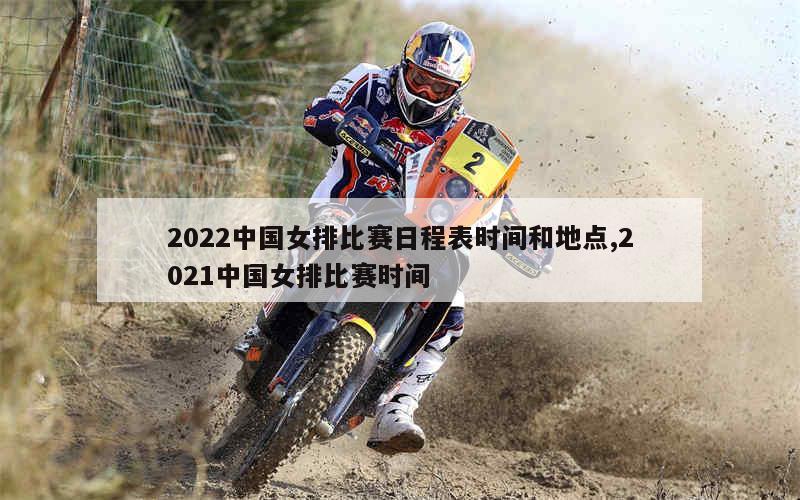卡塔尔世界杯小组抽签阿根廷荷兰上上签德西日组死亡之组

卡塔尔世界杯小组抽签阿根廷荷兰上上签德西日组死亡之组
北京时间4月2日,卡塔尔世界杯小组赛抽签仪式落幕,32强已全部落位。
A组:卡塔尔、厄瓜多尔、塞内加尔、荷兰
B组:英格兰、伊朗、美国、乌克兰与苏格兰胜者vs威尔士
C组:阿根廷、沙特、墨西哥、波兰
D组:法国、阿联酋与澳大利亚胜者vs秘鲁、丹麦、突尼斯
E组:西班牙、哥斯达黎加vs新西兰、德国、日本
F组:比利时、加拿大、摩洛哥、克罗地亚
G组:巴西、塞尔维亚、瑞士、喀麦隆
H组:葡萄牙、加纳、乌拉圭、韩国
阿根廷荷兰法国“上上签” E组现“死亡之组”
阿根廷此次签位上佳,他们将和墨西哥、波兰、沙特阿拉伯直面。
根据赛程,阿根廷首战将面对最弱的沙特阿拉伯,次战面对世界杯的常客墨西哥,最后迎战波兰,不管从什么角度来看,阿根廷都不应该再经历上届世界杯艰难晋级的痛苦。
而荷兰队作为第二档的球队遇上了最弱的种子队——东道主卡塔尔,主帅范加尔认为自己当下很难对抽签好坏给出看法,因为所有的对手他都不够了解,“我不知道这是不是一个好签,我对这些国家了解不多,两年前我在塞内加尔度假,我从来没有去过厄瓜多尔,我也从来没有看过卡塔尔的比赛。”
法国队主帅德尚直言“我不确定我们能不能从小组赛出线”,他表示:“因为这个小组里还有一个未知的对手,此外,丹麦去年的欧洲杯进入到四强,对于突尼斯,我们有尊重,也有疑问。”
听上去,德尚认为这个小组充满了不确定性,但事实上无论丹麦、突尼斯还是潜在的另一个入围队(将在澳大利亚、阿联酋和秘鲁中产生)都很难对法国造成阻碍,法国队晋级几乎是板上钉钉的事情。
当下最为乐观的恐怕是英格兰,名宿莱因克尔在社交媒体上写道:“英格兰、美国、伊朗和苏格兰或者威尔士,现在我们可以期待一点儿东西了。”
与此相对的,E组中有西班牙、德国两只传统豪门以及亚洲强队日本,每场小组赛都将是出线生死战,堪称“死亡之组”。
亚洲球队签运糟糕,恐全军覆没
除了上文提到的身处“死亡之组”的日本队之外,其他亚洲球队的签运也可谓十分糟糕。
身处B组的伊朗队,他们的对手分别是英格兰、美国以及欧洲区的附加赛球队,如果不出大意外的话,伊朗队从小组突围的几率不大;而位居C组的沙特队在小组赛的对手分别是阿根廷、墨西哥和波兰,从实力对比来看,这支西亚劲旅恐怕难求一胜;韩国队所处的H组还有葡萄牙、加纳和乌拉圭,如果这三支队伍没有像2018年世界杯德国队那样“拉胯”表现的话,“太极虎”想要出线,也不太可能。
而作为东道主的卡塔尔队,签运也只能算是一般,同组的厄瓜多尔、塞内加尔本就够西亚球队头疼的了,加之还有“无冕之王”荷兰队的存在,这一下让A组的整体实力明显提升,卡塔尔队想小组出线太难了。
由此看来,本届卡塔尔世界杯很有可能会见证亚洲球队再一次在小组赛就全部折戟,而上一次亚洲球队在小组赛全军覆没是2014年的巴西世界杯。
世界足坛热议世界杯抽签形势:可能要有英国德比,相信阿根廷
卡塔尔世界杯抽签落定,在各组名帅眼里,他们的“签运”到底怎么样
A组:卡塔尔、厄瓜多尔、塞内加尔、荷兰——“比2014年强”
荷兰队主帅范加尔:“这些对手我们都不了解,接下来要做很多工作。记得2014年世界杯我们在最艰难的小组,其中包括世界冠军西班牙队。与那个分组相比,这次更有利,尽管我们将要面对非洲冠军。”
B组:英格兰、伊朗、美国、威尔士/苏格兰/乌克兰——“可能要有‘英国德比’”
英格兰队主帅索斯盖特:“很久没和这两队交过手了,另一支球队还不清楚,但有可能将看到‘英国德比’。美国队排名很高,也有很多优秀的球员,实力很强。”
C组:阿根廷、沙特阿拉伯、墨西哥、波兰——“我相信阿根廷”
阿根廷队主帅斯卡洛尼:“我相信我们是很棒的球队。我们不能抱怨分组,也不能自满。墨西哥是我们熟悉的劲敌,波兰在附加赛上击败了瑞典,沙特阿拉伯在预选赛中表现出色。这个小组不容易。但我想对大家说,保持冷静,享受世界杯。我希望阿根廷进决赛。”
D组:法国、阿联酋/澳大利亚/秘鲁、丹麦、突尼斯——“世界冠军是四年前了”
法国队主帅德尚:“还是要冷静。丹麦可是打进了欧锦赛半决赛,现世界排名第11,是欧洲最好的球队之一。我们虽是世界冠军,但那是四年前的事了。当然,这会让球迷对我们有更多期待,但我仍然保持冷静。总地来说,不要有压力,享受快乐,尽情展现自我。”
E组:西班牙、哥斯达黎加/新西兰、德国、日本——“小组很强,我们不变”
西班牙队主帅恩里克:“考虑到还有德国,这是很强的组,但我们是头号种子,这是近些年努力换来的。其他球队说实话我几乎一无所知,接下来需要研究对手,并继续思考和相信一点——我们之所以成为一个团队的特质。不论世界杯还是友谊赛,我们不会改变比赛风格。这个风格非常明确,就是让任何对手都感到困难。”
F组:比利时、加拿大、摩洛哥、克罗地亚——“我们无所畏惧”
加拿大队主帅赫德曼:“这将是又一个机会去展现我们是一支崭新的球队。我们无所畏惧,因为勇气和决心是球队特质。我们会踢得聪明,但不会害怕。”
G组:巴西、塞尔维亚、瑞士、喀麦隆——“几乎和2018年一样”
巴西队主帅蒂特:“这既不是‘死亡之组’,也不能说轻松。分组几乎和2018年世界杯一样,就缺了哥斯达黎加。瑞士和塞尔维亚阻挡过意大利和葡萄牙的晋级之路,喀麦隆是非洲劲旅。我们要做的就是提升自己。”
H组:葡萄牙、加纳、乌拉圭、韩国——“一个杯子,半满半空”
葡萄牙队主帅桑托斯:“这就像一个杯子,半满半空。如果回顾历届世界杯,乌拉圭无疑是热门。如果看排名,我们是热门。但不能忘了加纳和韩国,他们有很好的球员。特别要提到韩国队主帅本托(葡萄牙人),他干得非常好,令人钦佩。”
网友热议:亚洲球队难 荷兰阿根廷签运好
中考英语考点词汇精讲910
中考英语考点词汇精讲(9)
1. everyday; every day
(1)everyday作形容词,意为“每天的,日常的,平日的”。仅用在名词之前做定语,不能单独使用。例如:
everyday life 日常生活
everyday English 日常英语
everyday activities 日常活动
everyday clothes 平日里穿的服装
(2)every day 是副词短语,意为“每天”,相当于each day, 通常用作句子的时间状语从句。
We should eat vegetables and fruits every day.我们应该每天都吃蔬菜和水果。
My parents ask me to go to bed before 11:00 every day.我的父母要求我每天11:00之前睡觉。
2. fair
(1)fair作形容词,意为“公平的,合理的”。There must be fair play whatever the competition is.不管是什么样的竞赛都必须公平合理。
(2)fair作形容词,意为“自然的,理所当然的”。It’s fair enough to ask your close friends to help.向你的好朋友求助,这是很自然的/理所当然的。
(3)fair作形容词,还意为“相当大(多、远)的”。
They’ve made a fair amount of money.
他们赚了相当大的一笔钱。
(4)fair作形容词,也意为“(肤色)浅的,(头发)金色的”。
Her daughter has big eyes and fair hair.
她的女儿长着大大的眼睛,金色的头发。
【拓展】
fair作名词,意为“(定期)集市、庙会;商品展览会、博览会”。
He brought his piglets to the fair.
他把小猪带到集市去卖。
A book fair is to be held next month.
下个月将举行书展。
3. avoid
(1)从意思上看,可表示“避开”或“躲避”(keep oneself from)某人或某物;也可表示“防止”(prevent)某事的发生。例如 :
Try to avoid accidents.
尽量防止发生事故。
I avoided him as much as possible.
我尽量避开他。
You should avoid such mistakes.
你应当避免这样的错误。
正:He avoided answering my questions.
误:He avoided to answer my questions.
要想不受影响是不可能的。
正:It was impossible to avoid being affected.
误:It was impossible to avoid to be affected
4. be famous for
(1)be famous for表示人以某种知识技能,作品或特征而出名;表示某地以某种特产或特征出名;或表示某事以其内容、特征、价值等而被人所知。例如:He is famous for his skill in playing football.
他因球艺而出名。
The area is famous for its green tea.
这个地区以产绿茶而著称。
【拓展】
be famous as 表示“以……而出名”的意思,或确切地说是“作为……而出名”的意思,主要是表示人以某种身份或职业而出名,或表示某地方作为什么产地或地方而出名,或表示某事物以某种形式而出名。Mark Twin was famous as a children-story writer.马克·吐温作为儿童故事作家而著称。
This book is famous as a reference book.
这本书作为参考书而出名。
5. produce; product; production
(1)produce 作动词,表示“生产,制造,出产”的意思;例如:
Tea is produced in many different areas in China.
中国很多地方都出产茶叶。
produce作名词,主要指农产品,是一个不可数的集合名词。例如:
the agricultural produce农产品
the native produce土特产品
We need some fresh produce.
我们需要一些新鲜的农产品。
(2)product 主要指工业产品,也可指农产品,是可数名词。例如:
farm product农产品
Petrol is the most important product of many Middle-East countries.
石油是许多中东国家最重要的产品。
【注意】有时用于引申义。例如:
He saw man as the product of society.
他把人看作是社会的产物。
(3)production 通常不表示具体的产品,它主要指生产这一动作或过程,制作,摄制(电影、戏剧等),是不可数名词;例如:
The company is famous for the production of small cars. 这家公司以生产小型汽车闻名。
【注意】production 除表示“生产”外,还可指艺术作品,此时为可数名词。例如:
The theme of his late productions was life and death. 他晚期作品的主题是生与死。
production 还可以表示产量,是不可数名词
the production of wheat小麦生产产量
The production has increased.
产量已增加。
6. be good for
be good for意为“对……有好处,对……有益处”,介词for后接名词或代词。其反义词为be bad for,意为“对……有害处”。例如:
Junk food is not good for our health.
垃圾食品对我们的健康没有好处。
Smoking is bad for you. 吸烟对你有害。
【拓展】
(1) be good to“对……好”,其反义短语为be bad to“对……不好”。介词to之后一般接表示人的名词或代词。例如:
She is very good to us. 她对我们很好。
The boss is bad to his workers.
那个老板对他的工人不好。
(2) be good at“在……方面擅长”,介词at后面常接名词、代词或动词-ing形式,同义短语为do well in。例如:
She is good at English and Chinese.
= She does well in English and Chinese.
她擅长英语和汉语。
(3)be good with“和……相处得好;擅于和……相处”。例如:
Are you good with children?
你和孩子们相处得好吗
7. turn … into ….
(1) turn … into…表示“把……变成…… ; 使……变成……”。例如:
Can you turn this piece of paper into a flower? 你能够把这张纸变成一朵花吗
Please tell me how to turn the water into ice.
请告诉我怎么把水变成冰。
【拓展】
turn into表示“转变;变成;成为”。例如:
We think he’ll turn into a top-class player. 我们认为他会成为一流的选手。
I think I have got to stop or I might turn into a machine.我想我得停下来了,否则我就会变成一台机器。
8. special
(1)special作形容词,意为“特殊的,特别的,专门的(反义词:ordinary)”,强调事物特有的性质、性格或专门的目的、用途。
You must have special permission to enter this room.你必须得到特许才能进这个房间。
(2)especial 作形容词,意为“特别的,主要的,突出的(反义词:common)”,强调的是重要性,有“尤其、特别”之意。
He solved the problem of especial importance.他解决了非常重要的问题。
9. both … and …
(1)both...and...意为“……和……都……”; “不仅……而且……”,连接两个并列的词或短语,不能用来连接句子。作主语时,谓语动词用复数形式,不受“就近原则”的限制。例如:Both Li Ming and Wei Hua are good at English.
【拓展】
both...and...相对应的连词结构式neither…nor…表示“既不……也不……”。作主语时,谓语动词受“就近原则”的限制。例如:
Neither you nor I am a student.
你和我都不是学生。
10. invent
(1)invent 作动词,意为“发明;创造”。例如:
Edison invented the light bulb.
爱迪生发明了电灯。
(2)invent还可以表示“虚构”。例如:
The whole story was invented.
整个故事是虚构的。
(3) invent的名词形式有两个,一个是inventor(发明者;发明家),另一个是invention(发明物)。例如:
Edison is a great inventor in history.
爱迪生是历史上伟大的发明家。
Human history is also a history of great inventions.
人类的历史也是一个伟大发明的历史。
【拓展】
invent和discover辨析
(1)invent 意为“发明,发明之物”指“从无到有”。例:
Alexander Graham Bell invented the telephone in 1876.
亚历山大·格雷厄姆·贝尔在1876年发明了电话。
(2)discover 意为“发现”,指“本来就已经存在,但不为人知”的事物。例如:
Columbus discovered America in 1492.
哥伦布在1492年发现了美洲。
11. for example
for example意为“例如”,强调“举例”说明,而且一般只举同类人或物中的一个作为插入语,且用逗号隔开。for example可置于句首、句中或句末。例如:
There are many kinds of pollution, for example, noise is a kind of pollution.
有许多种污染方式,例如噪音就是一种污染。
Many students like playing computer games,for example,Mike.
许多学生喜欢玩电脑游戏,比如迈克。
【拓展】
such as意为“例如”,用来“罗列”同类人或物中的几个例子,可置于被列举的事物与前面的名词之间,但such as后边不能用逗号。例如:
Many of the English programs are welcome, such as Follow Me, Follow Me to Science.
其中有许多英语节目很受欢迎,例如《跟我学》《跟我学科学》。
English is spoken in many countries, such asAustralia,Canadaand so on.
许多国家说英语,如澳大利亚和加拿大等。
12. popular
(1) popular作形容词,意为“流行的,受人欢迎的”。常用短语为be popular with,意为“受……的欢迎。例如:
The most popular sport is football. 最流行的运动是足球。
He is popular with our classmates. 他在我们班里有人缘。
(2)popular作形容词,意为“民众的;大众的”。
Popular education is one of our major objectives. 民众教育是我们的主要目标之一。
He speaks in popular language. 他用通俗的语言讲话。
【拓展】popularity作名词,意为“普及,流行;大众化”。Golf has gained popularity among the wealthy in my country.高尔夫球已在我国富有的人中流行起来。The popularity of private cars is changing the people’s life style.
私家车的普及正在改变着人们的生活方式。
13. remain
(1)remain用作不及物动词,意为“剩下、留下、呆在”,相当于stay。例如:
When the others had gone, Joan remained (=stayed) to clean the room.
别人走了,琼留下来清扫房间。
Only a few leaves remained (=were still) on the tree.树上只剩下几片叶子了。
The Smiths remained there all through the year. 史密斯一家人在那里呆了整整一年。
The soldiers were ordered to remain where they were. 士兵们接到命令呆在原地。
(2)remain作连系动词,意为“一直保持,仍然处于某种状态中”。例如:
Peter became a manager but John remained a worker. 彼得当上了经理,但约翰仍然是一个工人。
Whatever great progress you have made, you should remain modest. 无论你取得了多么大的进步,你都应一直保持谦虚。
The shop remains open until 11 at night.
这个商店一直营业到晚上十一点。
Whether it will be good to us remains to be seen. 这是否对我们有好处,还有待观察。
14. smell
smell作名词,表示“气味”。smell作连系动词,意为“闻、嗅”,后面常用形容词作表语。
What’s the pleasant smell? 香味是什么
The dumplings smell nice. 这些水饺闻起来很好。
【拓展】
(1)look,sound,smell,taste,feel这五个动词都与人的感觉有关,可称之为“感官”动词。这五个动词均可作连系动词,后面接形容词作表语,说明主语所处的状态。其意思分别为“看/听/闻/尝/摸起来……”。除look之外,其它几个动词的主语往往是物,而不是人。
The old man looks very happy.
那个老人看起来很幸福。
These flowers smell very sweet.
这些花闻起来很香。
The tomatoes feel very soft.
这些西红柿摸起来很软。
(2)look,sound,smell,taste,feel这些动词后面也可接介词like短语,like后面常用名词。
Her idea sounds like fun.
她的主意听起来很有趣。
15.take place
take place常用于历史事件或会议的发生,以及化学、物理变化,有事先预料或计划的意思,即“计划发生”。例如:
The party took place yesterday evening. 昨晚举办了晚会。
Great changes have taken place in our hometown during the past ten years. 我们家乡在过去的十年里发生了巨大的变化。
【拓展】
happen指具体客观事物的发生,常有偶然性,未能预见性,即“偶然发生”。happen和take place均为不及物动词,无被动语态。
(1) 表示“某地/某时发生了什么事”,常用“sth. + happened + 时间/地点”这一结构,此时主语应该是物。例如:
The story happened in 2008.
这个故事发生在2008年。
An accident happened in that street.
那条街上发生了一起事故。
(2) 表示“某人出了某事(常指不好的事)”要用“sth. + happened + to sb.”这一结构。例如:
A car accident happened to her this morning. 今天上午她出了车祸。
What happened to you? 你怎么啦
(3) 表示“某人碰巧做某事”要用“sb. + happened + to do sth.”这一结构。
I happened to meet a friend of mine in the street yesterday. 昨天我碰巧在街上遇到了我的一个朋友。
16.boil
boil作动词,意为“使……煮沸,使……烧开”。
I stood in the kitchen, waiting for the water to boil. 我站在厨房,等着水烧开。
【拓展】
(1) boiling作形容词,表示 “炎热的; 沸腾的”。
When everybody else is boiling hot, I’m freezing! 当其他所有人都酷热难耐时,我却冻得够呛!
Placing an egg into a huge pan full of boiling water isn’t easy either.
把蛋丢进一口装满开水大锅也不是容易的事。
(2)boiled作形容词,表示“煮过的;煮熟的”。
I’d like to drink a glass of cool boiled water. 我想喝一杯凉开水。
17. achieve
( 1)achieve作及物动词,意为“完成,实现”。
You will never achieve anything if you spend your time that way.
你若总是这样消磨时间,就永远不会有所成就。
Everybody should be given the chance to achieve their aims.
要让每个人都有机会实现自己的目标。
No one can achieve anything without effort.
谁也不可能不努力而有所作为。
(2)achieve作及物动词,意为“达到,赢得”。
The actor achieved fame when he was only nineteen. 那位演员十九岁时就成名了。
She achieved no success. 她没有获得成功。
【拓展】
achievement作名词,意为“成就,成绩”。例如:
The invention of the computer is a great achievement. 发明电脑是一大成就。
18. pleasure
pleasure作名词,指“愉快的事,乐趣”。
It’s a pleasure to meet you. 见到你很快乐。
It’s my pleasure. 不客气(接受道谢时解答)。
【拓展】
(1) pleased作形容词,指外物作用于感官,使人感到“高兴、满意”,常见的结构为:be pleased+不定式或从句, be pleased with, be pleased at (about)。例如:
I’m very pleased with the performance.
我很满意这次表演。
We’re pleased about (at) your success.
对于你的成功我们很满意。
I’m quite pleased that she has got such a good chance.
我很高兴她得到这样一个好的机会。
(2) pleasant作形容词,意为“令人愉快的,讨人喜欢的”。例如:
They spent a very pleasant afternoon in the hills. 他们在山上度过一个令人舒心的下午。
Spring weather is pleasant.
春天的天气让人心旷神怡。
中考英语考点词汇精讲(10)
1. grow up
grow up意为“长大;成熟;成长”。例如:
I grew up in Beijing. 我是在北京长大的。
I want to be a football player when I grow up. 我长大后相当一名足球运动员。
【拓展】
(1)grow into意为“长大成为”。例如:
Mary grew into a beautiful girl.
玛丽长成了一个漂亮的姑娘。
(2)grow还有“种植;增长”的意思。例如:
The farm grows all kinds of crops, such as rice, wheat and cotton. 这个农场种植各种各样的庄稼。例如:稻谷、小麦和棉花。
The population of the world is growing faster and faster. 世界人口增加得越来越快。
2. make sure
make sure=be sure,意思是“确信”,它的后面可以跟that(可省略)引导的宾语从句、动词不定式或of短语。例如:
I am sure of his guilt.我确定他有罪。
I am sure to help you tomorrow.
我明天一定会帮你。
I am sure(that)he will achieve his goal. 我确定他会实现目标的。
3. education
education是名词,意为“教育;教育学”。例如:
Everyone wants to have a good education. 每人都想有一个良好的教育。
His lack of education is a disadvantage when he looks for a job.
他缺少教育,这在找工作时是一个不利条件。
【拓展】
educational是形容词,意为“教育的,有教育意义的”,常作定语。例如:
The staff should make sure the kids have an enjoyable and educational day.
老师们应该确保孩子们度过愉快而有教育意义的一天。
Several educational methods are being used at present.很多种教育的方式目前正在被使用。
4. send
send是及物动词,意为“寄,发送”,过去式和过去分词都是sent,其后能接双宾语,即send sb. sth.=send sth. to sb.。例如:
He sent me a postcard.
= He sent a postcard to me.
他寄给我一张明信片。
【拓展】
动词接双宾语时,有两种结构:
(1) 动词 + 间接宾语(sb.) + 直接宾语(sth.)
(2) 动词 + 直接宾语(sth.) + 介词(for/to) + 间接宾语(sb.)
能接双宾语的动词可分为两类:
(1)常用介词to的动词有:send; give; show; bring; show; teach; tell等。例如:
give sb. sth. = give sth. to sb.
show sb. sth. = show sth. to sb.
(2)常用介词for的动词有:buy; sing; make; cook; get等。例如:
buy sb. sth. = buy sth. for sb.
make sb. sth. = make sth. for sb.
5. resolution
resolution为可数名词,意为“决心;决定”,常与make形成固定词组搭配:make a resolution意为“做决定;下决心”。例如:
People write down their resolutions and plans for the coming year.
人们写下他们的决心以及对来年的计划。
He made a resolution to study hard.
他下决心要努力学习。
6. hobby
hobby为可数名词,意为“业余爱好;兴趣”,其复数形式为hobbies。例如:
I collect stamps as a hobby.
我的爱好是收集邮票。
My hobbies are letter writing, football, music, photography, and tennis.
我的业余爱好是写信、踢足球、听音乐、玩摄影和打网球。
My hobby is to read books. 我的爱好是读书。
7. agree with
agree with意为“同意……;赞成……”,后面接表示人或表示“意见;观点”的词。例如:She agreed with me. 她同意我的意见。I quite agree with what you said. 我完全同意你说的话。
【拓展】
(1)agree to意为“赞同;同意”,后面接表示“计划;提议;办法;安排”等词,to是介词。例如:They agree to my idea. 他们同意我的想法。Do you agree to this arrangement? 你同意这个安排吗 (2)agree还可以用于that从句前,表示“同意;一致认为”。例如:We all agreed that it was a good plan. 我们一致认为这是一项好计划。It was agreed that another meeting was necessary. 大家一致认为有必要再开一次会。
8. personal
personal是形容词,意为“个人的;私人的”。例如:
This is a personal letter. 这是一封私人信件。
Can I ask you a personal question?
我可以问你一个私人问题吗
【拓展】
personality是名词,意为“个性;性格”。例如:
She has such a kind, friendly personality.
她个性善良友好。
It completely depends on your personality.
这完全由你的性格决定。
9. improve
improve是动词,意为“改进;改善;提高”。
You’d better work out a plan to improve your writing skills.
你最好制定一个精心提高写作能力的计划。
We haven’t discovered how to improve it.
我们还没找到如何改进它的办法。
【注意】
improve的意思是“改进;使更好(make better)”,已包含better之意,因而不能再与better连用。
【拓展】
improvement是名词,意为“改善;改进;提高”。例如:
This essay represents a considerable improvement on your recent work.这篇论文说明你最近的工作取得了相当大的改进。
10. discuss
discuss是动词,意为“讨论;商量”。常用短语为:discuss sth. with sb.意为“和某人谈论某事”。例如:
We discussed our plans for the new term.
我们讨论了我们的新学期计划。
You needn’t discuss this matter with me.
你不必和我讨论这件事。
【注意】
discuss一般不直接跟动词不定式作宾语,但可跟“疑问词+动词不定式”结构或从句。例如:
They are discussing how to do it.
他们在讨论该怎么做这件事。
We discussed when we should leave.
我们商量了该什么时候动身。
【拓展】
argue与discuss的辨析
(1) argue着重于自己的看法、立场,提出论据,以理说服他人。例如:
There is no need arguing about the matter. 不必就此事辩论了。
(2) discuss重在交换意见,进行讨论,不含有说服对方的成分。例如:
We’re going to discuss the question. 我们打算讨论这个问题。
请为即将上初中的孩子收藏吧!人教版七上英语5单元知识点
Unit 5 Do you have a soccer ball
第一部分:词汇精讲
1. go v. 去;走
He usually goes to school by bike. 他经常骑自行车去学校。
【拓展】 过去式:went 过去分词: gone 现在分词:going 第三人称单数:goes
We' ll go for a walk if you feel like it.你愿意的话,咱们就去散散步。
【短语】 go to school 去上学 go shopping 去购物
go home 回家 go cycling 骑自行车
2. late adj. 迟到的,晚的
I'm afraid I may be a little late. 恐怕我可能稍晚一点。
【短语】be late for… ……迟到
Tom is late for class again. 汤姆上课又迟到了。
【拓展—反义词】 early adj.早的
She gets up early every morning. 她每天早上很早起床。
【拓展—其他词性】late adv. 迟地,晚地,指比预定的时间或一般情况晚。
Don't get up late tomorrow. We'll have a meeting. 明天别起晚,我们有会。
3. get v. 去取(或带来);得到
When can I get your letter? 我什么时候收到你的信
【拓展---相关短语】
1. get up 起床
I usually get up at 7:00 o'clock. 我通常7点起床。
2. get on 上(车、船、飞机等)
The bus is coming. Let's get on the bus.车来了,我们上车。
3.get off 下(车、船、飞机等)
Look, Jack is getting off the bus. 看,Jack即将下车了。
4. play v. 参加(比赛或运动);玩耍
Well, let's play basketball. 噢,我们去打篮球吧。
【基本用法】
当play后接球类或棋类名词时,名词前不用冠词;当play后接乐器名词时,表示弹奏某种乐器,乐器名词前必须加定冠词the。如:
play football 踢足球 play chess 下象棋
play the piano 弹钢琴 play the violin 拉小提琴
5. interesting adj. 有趣的
The story is interesting. 这个故事很有趣。
【拓展】
像interesting一样可以表示人或事物的性质、状态和特征的,在句子中可以作定语或表语等的词还有:
boring 没趣的,无聊的 fun 有趣的,使人快乐的
difficult 困难的 relaxing 轻松的,令人放松的
【区分】interesting /interested
interesting adj.令人感兴趣的 interested adj. 对…感兴趣的
诸如此类形容词:excited 兴奋的/exciting 令人兴奋的
surprised 惊讶的/surprising 令人惊讶的
此类形容词以ed结尾的常形容人,以ing结尾的常形容人。
常用短语:be interested in…结构,意为"对……感兴趣"。
例如:I am very interested in the interesting story. 我对这个有趣的故事很感兴趣。
6. same adj. 相同的
We go to the same school and we love soccer. 我们去同一所学校,并且我们喜爱足球。
【拓展】常与冠词the连用。
It is boring to listen to the same story. 听相同的故事是令人厌烦的。【拓展—反义词】
different adj. 不同的
The weather here is different from the weather in my hometown. 这儿的天气与我家乡天气不同。
【常用词组】the same as…和…一样
My book is the same as yours. 我的书和你的一样。
7. sport n. 体育运动
I like doing sports very much. 我非常喜爱做运动。
【短语】have sports=play sports=do sports 做运动;参加体育运动或比赛
We like to play sports in the gym. 我们在体育馆做运动。
a sports club 体育运动俱乐部
sports shoes 运动鞋
sports meeting 运动会
8. like v. 喜欢;喜爱
I like playing ping-pong after school. 我放学后喜欢打乒乓球。
【拓展】 like to do sth./like doing sth.表示"喜欢做某事"。
两者区别在于like to do 是偶然一次喜欢做某事,like doing 是习惯性的喜欢做某事。
I like playing basketball, but today I like to play football. 我喜欢打打篮球,但是今天我喜欢踢足球。
9. easy adj. 容易的;不费力的
It's easy for me. 它对我来说很容易。
【拓展】 be easy for sb.对某人来说容易。
I have a simple and easy method.
我有个简易的方法。
【拓展—反义词】 difficult adj. 困难的
It's difficult for me to learn English.
学英语对我来说很难。
10. difficult
difficult"困难的",相当于hard。在句子中可作定语或者表语。其反义词是easy"容易的"。
其名词形式是difficulty。 常用于以下结构:It's difficult for sb. to do sth. (对某人来说做某事很困难。)
例如:It's difficult for me to listen to you clearly.
对我来说听清楚你说话很难。
11. great
great 形容词,意为"美妙的,大的,伟大的"。
例如:That's great! 太好了!
He's a great man. 他是个伟大的人。
12. watch
watch作动词时,意为"看"。一般指看动态的东西,例如:节目、比赛等。动词短语"看电视"用"watch TV"。
watch 还可以指认真观察,或者目睹事情的全过程。
例如:I watched my son become from a baby to a boy.
我看到我的儿子从婴儿变成了男孩儿。
Just watch what will happen when I press the button.
看着, 我按按钮会发生什么事情。
watch 还可以作名词,意为"手表"。
例如:My father bought me a new watch. 我爸爸给我买了块新表。注意:watch与see,look,read的区别look意为"看",指看的动作。例如:Look!The children are playing on the playground. 看!孩子们在操场上玩。see意为"看到",指看的结果。
例如:I saw a bird in the tree. 我看见树上有只鸟。read意为"读书,看报"等。例如: I like reading very much. 我很喜欢读书。
13. only
only 副词,"仅仅,只"。常放在所强调的词或者短语之前,表示程度。
例如:I have only one book. 我只有一本书。
only还可以作形容词,表示"唯一的;仅有的",在句中常作定语。
例如:This is their only son. 这是他们唯一的儿子。
14. fun
fun名词,意为"乐趣, 娱乐,有趣的事"等。have fun 等于have a good time, 意为"玩的很开心"。
例如: We had a lot of fun yesterday. 昨天我们玩的很开心。
funny 是fun的形容词,意为"有趣的,令人愉快的",形容词。多用于口语中,相当于interesting。
例如:a funny film 一部有趣的电影
词汇精练
Ⅰ. 英汉互译。
1. 玩电脑游戏
2. 喜欢踢足球
3.看电视
4.打篮球
5.一本有趣的书
Ⅱ. 根据句意和所给首字母填入适当的单词完成句子。
1. My sister doesn't like math because she thinks it is very d______.
2. We all like playing basketball. It is a r______ sport.
3. It is b______ to watch TV at home.
4. Well, let's p_____ basketball.
5. Tom has a nice tennis r______.
6. L play tennis.
7. Michael Jordan plays b well.
8. That s interesting.
9. D Dock have a bat?
10. I want to play w them.
Ⅲ. 选用正确的词填空
1. What ________ Sue have? She has some sports things.
2. Do you have some more paper? No, I ________.
3. There ________ two footballs and a volleyball in the basket.
4. Let's ________ good friends.
5. ________ you spell your name, please?
6. ________ there a football game on TV today?
7. Sorry, I ________ answer the question. It's too difficult.
8. Card ________ like sports. He thinks it's boring.
9. ________ they have some sports things?
10. I ________ a football fan. I like it very much.
第二部分:重点句型
1. Do you have a ping-pong ball?
你有乒乓球吗
动词"have"意为"有",表示拥有关系,有人称和数的变化,当主语是"I, we, you, they"或名词复数时,就与"have"搭配。如:
My parents have a computer.我父母有一台电脑。
I have an English book. 我有一本英语书。
当主语是第三人称单数或者单数名词时,表示拥有要用has。
例如:She has a brother. 她有一个弟弟。
Tom has a new bike. 汤姆有一部新自行车。
"have"的否定式是"don't have";"has" 的否定式是"doesn't have"。
例如:We don't have a house. 我们没有房子。
She doesn't have a car. 她没有小汽车。
2. I don't have a soccer ball. 我没有英式足球。
句式"主语+have/has +宾语+其他。"的否定句是"主语+don't/doesn't+ have+宾语+其他。"。当主语是第一人称,第二人称以及第三人称复数时,在have的前面加"don't"来否定。
例如:I don't have a skirt. 我没有裙子。
They don't have many friends in China. 他们在中国没有很多朋友。
当句子的主语是第三人称单数形式时,这个句式的否定句是在"has"前面加"doesn't",并将has变为have。
例如:My father doesn't have a big house. 我的爸爸没有一座大房子。
She doesn't have a doll. 她没有娃娃。
3. Let's play basketball.
咱们打篮球吧。
let意为"让,允许", 表示 "让(允许)某人做某事"应该说"let sb. do sth.",不能说"let sb. to do sth."。如:
Let me help you. 让我帮助你。
His mother doesn't let him go out at night. 他母亲不让他晚上出去。
"Let's…"是表示建议或请求的祈使句句型,"Let's"是"Let us"的缩写形式。
例如:Let's go to school. 咱们上学吧。
Let's play basketball after school. 咱们放学后打篮球吧。
拓展:Let's 与Let us在用法上略有区别
在表示向对方提出建议,涉及双方的共同行为时,"Let us"可以缩写成"Let's";而表示请求对方允许做某事,不涉及对方行为时,"Let us"不能缩写成"Let's"。
例如:Let's (=Let us) play sports. 咱们做运动吧。
Let us know your telephone number. 请把你的电话号码告诉我们。(Let us 不能缩写成Let's)
注意:
以"Let's"开头的句子改为反意疑问句的时候,后面的附加疑问句用"shall we ",因为Let's是把说话人包含在内了;以"Let us"开头的句子改为反意疑问句的时候,后面的附加疑问句用"will you?", 因为"Let us"没有把说话人包含在内。
4. That sounds good. 那听起来不错。
sound做连系动词讲时,意为"听起来",后面跟名词或者形容词作表语,构成主系表结构。例如:Your idea sounds great. 你的想法听起来很不错。
sound当名词讲时,意为自然界的各种声音。
例如:Sound travels slower than light. 声音传播比光慢。拓展:常见的连系动词有:be动词(am,is, are); 和感官有关的词(look 看起来, feel 摸起来,taste 吃起来,smell 闻起来);表示改变,变化含义的词(get,become,turn,go, come);以及其他常用词seem等。例如:His face turns red. Do you know why? 他的脸变红了。你知道为什么吗
The food went bad. 食物坏了。
【比较】listen, hear, sound
(1)listen v. 听,强调听的过程。
We listen to the teacher carefully. 我们认真听老师讲。
(2)hear v. 听见,强调听的结果。
We can't hear the singer because we sit far away. 我听不见歌手在唱什么,因为我们做得很远。
(3)sound v. 听起来,为系动词。
That sounds very interesting. 那听起来很有趣。
4. We go to the same school and we love soccer. 我们去同一所学校,而且我们都喜欢足球。
go to school 意思是"上学",school前不用定冠词。而go to the school 意思是"去学校",不一定是去上学。
the same 常用来修饰单数可数名词,意思是"同一个"(人物或者地点),而且same前一定要用定冠词the ,例如:
Li Wei and Zhang Hua are in the same class. 李梅和张华在同一班级。
5. I love sports, but I don't play them — I only watch them on TV. 我喜欢运动,但是我不做体育运动,我只是在电视上看。
"but"是并列连词,意为"但是,然而",表示转折关系。
例如:He can play basketball, but he can't play ping-pong.
他会打篮球,但他不会打乒乓球。
It is sunny but cold today. 天气晴朗,可是很冷。
介词"on"的意思是"通过某种方式","be on TV"表示"在电视上播放"的意思。
6. Do you have a ping-pong ball?
你有乒乓球吗
动词"have"意为"有",表示拥有关系,有人称和数的变化,当主语是"I, we, you, they"或名词复数时,就与"have"搭配。如:
My parents have a computer.我父母有一台电脑。
I have an English book. 我有一本英语书。
当主语是第三人称单数或者单数名词时,表示拥有要用has。
例如:She has a brother. 她有一个弟弟。
Tom has a new bike. 汤姆有一部新自行车。
"have"的否定式是"don't have";"has" 的否定式是"doesn't have"。
例如:We don't have a house. 我们没有房子。
She doesn't have a car. 他没有小汽车。
7. I don't have a soccer ball. 我没有英式足球。
句式"主语+have/has +宾语+其他。"的否定句是"主语+don't/doesn't+ have+宾语+其他。"。当主语是第一人称,第二人称以及第三人称复数时,在have的前面加"don't"来否定。
例如:I don't have a skirt. 我没有裙子。
They don't have many friends in China. 他们在中国没有很多朋友。
当句子的主语是第三人称单数形式时,这个句式的否定句是在"has"前面加"doesn't",并将has变为have。
例如:My father doesn't have a big house. 我的爸爸没有一座大房子。
She doesn't have a doll. 她没有娃娃。
句式精练
Ⅰ. 连词组句。(请注意大小写和标点符号)
1. she, does, a volleyball, have
___________________________________
2. don't, they, a soccer ball, have
___________________________________
3. sports, you, do, like
___________________________________
4. every day, Sue, sports, plays
___________________________________
5. computer games, play, let's, sounds, that, interesting
___________________________________
Ⅱ. 按要求转换句型。
1.My father doesn't like playing tennis.(变为肯定句)
____________________________________________
2.I think tennis is very interesting.(就划线部分提问)
___________________________________________
3.Tim has a gold watch.(变为一般疑问句)
____________________________________________
4.I play sports every morning.(变为否定句)
____________________________________________
5. There are old bikes under the tree.(变为单数句)
____________________________________________
III. 从右栏中找出与左栏对应的答语。
Ⅳ. 根据汉语意思完成句子,每空一词。
1.你朋友有网球拍吗?
__________ your friends __________ tennis bats?
2.他的妹妹没有双肩挎包。
His __________ __________have a schoolbag.
3. 让我们一起打棒球吧!
__________ play__________!
4.他仅在电视上观看它们。
He only__________ __________ on television.
5.Tony有五个篮球。
Tony __________ five __________.
Ⅴ. 补全对话,每空一词。
Mike: Hi, Tony, let's 1 baseball.
Tony: 2 sounds good, Mike. That 3 fun.
Mike: Do you 4 a baseball or a baseball 5 ?
Tony: Oh, no. I don't have a baseball and I don't have a baseball bat.
Mike: 6 your sister have a ball or a bat?
Tony: Yes, 7 does. Hi, 8 ! Where 9 your baseball and bat?
Gina: They're under the bed.
Tony: OK! 10 play.
第三部分:语法点拨
have用法
1. have 用于复数名词、第一、二人称单复数或第三人称复数代词作主语的句子中;has为have的第三人称单数形式,用于不可数名词、可数名词单数或第三人称单数代词作主语的句子中。
People have their own hobbies. 人们都有自己的业余爱好。
Tom has three pens. 汤姆有3支钢笔。
2. have/has作谓语时的句型转换
(1) 否定句式:主语+don't/doesn't have…
(2) 一般疑问句式:Do/Does+主语+have…?
肯定答语:Yes, 主语+do/does. 否定答语:No, 主语+don't/doesn't.
—Do you have a bike?
—Yes, I do./No, I don't.
当have/has后的名词被some修饰时,在否定句和疑问句中some要改为any。
I have some good friends.
我有一些好朋友。 →I don't have any good friends.
3. have/has当"有"讲时与there be的区别
(1) have/has与主语为所属关系,强调的是某人"拥有,占有"某物,主语一般为名词或代词;there be
句型表示"存在关系",它强调的是一种客观存在的事实,为there引起的倒装句。
(2) there be与have/has有时可以互换使用。
4. 在英国英语中常用have/has got表示"有,拥有,占有",变疑问句和否定句时不再借助于助动词
do和does。
I've got a computer. →I haven't got a computer .→Have you got a computer?
5. have/has的含义相当多,可表示"吃、喝"等,还可构成许多常用的短语,其后跟不同的名词作宾语时,其本身含义也随之发生变化。
have lunch 吃午饭
have a look 看一看
have a glass of milk 喝一杯牛奶
have a party 举行晚会
【词汇篇】
例1.(★★)______your father______ a new computer?
A. Is; have B. Do; have C. Does; have D. Does; has
【考点】一般疑问句。
【解析】你父亲有一台新电脑吗?本句为一般现在时的一般疑问句,且句中有实义动词,主语为第三人称单数,故选C.。
【答案】C
例2.(★★)I like swimming very much, _____I don't swim today.
A. and B. or C. but D. then
【考点】并列连词
【解析】根据句意"我很喜欢游泳,但是今天我没有游泳"可知,两句话之间为转折关系,因此要用but连接。and是顺承关系,or 是否则或者是否,then是然后。
【答案】C
例3.(★★★)Let's ___________________.
A. to play tennis B. play tennis C. play the tennis D. plays the tennis
【考点】动词let的用法,定冠词用法
【解析】let's后面跟动词原形,排除A、D两项;play与球类名词连用时,球类名词前不用冠词,故B项为正确答案
【答案】B
例4.(★)—Do they play_______ soccer?—No, they don't.
A. / B. a C. an D. the
【考点】冠词
【解析】play与球类名词连用时,球类名词前不加冠词。
【答案】A
例5.(★★)The boys don't like the video. It's .
A. fun B. boring C. relaxing D. interesting
【考点】形容词
【解析】有句意"男孩子们不喜欢这部录像。它是无聊的。"可知答案为B。fun是有趣的,relaxing放松的,interesting是有趣的。
【答案】B
【句型语法篇】
例6.(★★)Peter a baseball, but he doesn't a baseball bat.
A. have; has B. has; have C. have; have D. has; has
【考点】第三人称单数以及否定句
【解析】句意:彼得有一个棒球,但是他没有棒球拍。第一个句子中,主语Peter是第三人称单数,故谓语动词用第三人称单数形式;第二个句子是含有实义动词的一般现在时的否定句,后面的谓语动词应用原形。
【答案】B
【能力篇】
例7.(★★★)阅读并解答问题
I have three good friends. We like sports very much. My favorite sport is basketball. I have three balls. I think playing basketball is interesting. Jim and Tim think it is boring to play basketball. Their favorite sport is soccer. They play soccer every afternoon. They have four balls. Mary is a nice girl. Her favorite sport is volleyball. She plays it very well. It's relaxing for her to play volleyball. But she has only one ball. Sports are good for us.
( )1 .What's Jim and Tim's favorite sport?
A . Basketball B .Soccer C .Volleyball
( ) 2 .What's Mary's favorite sport ?
A. Soccer B. Volleyball C. basketball
( ) 3.Who has only one ball?
I B. Mary C .Tim
( ) 4 . Does Mary think it's boring to play soccer?
A .Yes she does. B. No, she doesn't. C. We don't know.
( ) 5.How many balls do I have ?
A . Three B. Four C. One
【答案】B B B C A
课后作业:
Unit 5 Do you have a soccer ball?
综合能力演练
【巩固练习】
Ⅰ. 单项选择。
1. Tina ______ to school at seven o'clock every day.
A.go B. goes C. are going D. are
2. ______ have a look _____ the photo.
A. Let; on B. Let; at C. Let's; at D. Let's; on
3. -______ your father _______ a new car?
-Yes, he does.
A. Do; has B. Do; have C. Does; have D. Does; has
4. I like baseball. ________ you?
A. Do B. What do C. What about D. How do
5. -Does Jane have a baseball?
-No, ______.
A. he does B. he doesn't C. she does D. she doesn't
6. Every boy in our class _______ a basketball.
A. is B. have C. has D. are
7. Do you have______ volleyball? Let's play_____ volleyball.
A. a; a B. / ; / C. a; / D. / ; a
8. Does your brother _______ a baseball?
A. has B. have C. is D. are
9. -What's ____ TV tonight?
-Sorry, I don't know.
A. on B. to C. in D. at
10. I have a sister. My parents like _______.
A. me B. them C. us D. we
11. Can you ______ a book on the table? Please give it to me.
A. look B. see C. read D. watch
12. Listen! Her voice ______ very good.
A. listen B. listens C. sound D. sounds
13. The question isn't difficult, _______ he can't answer it.
A. and B. but C. so D. or
14. My mother ______sports, she only ______ them on TV.
A. doesn't play; watches B. not play; watches
C. don't play; watch D. doesn't play; watch
15. The question is not easy. It's very _______ .
A. interesting B. fun C. difficult D. relaxing
Ⅱ. 完形填空。
I have a good friend. 1 name is Mary. She 2 from America. She is 3 China with her father and mother. She can 4 a little Chinese. She is in the No. 15 Middle School in Shanghai. Her father and mother 5 . They are in the No. 50 Middle School. Mary is a good student. She 6 school five days a week. She 7 up early. She 8 to be late. She often goes to school very early. But today she got up late. So she got to the classroom at seven thirty. 9 there weren't any students in the classroom. She wasn't late. She was still early. It was Saturday today. The students were all 10 . (New words:got是get的过去式; was是is的过去式; were是are的过去式。)
1.A.She B.He C.Her D.His
2.A.come B.comes C.are D. go
3.A.atB.inC.ofD.from
4.A.sayB.tellC.talkD.speak
5.A.is teacherB.are teachersC.is doctorD. are doctors
6.A.is goB.isC.go toD.goes to
7.A.like gettingB.likes gettingC.like getD.likes get
8.A.likeB.likesC.don't likeD.doesn't like
9.A.AndB.ButC.SoD.Too
10.A.at homeB.in homeC.at schoolD. in school
Ⅲ. 阅读理解。
A
Hello, I am Becky. I'm eleven. I have a sister, but I don't have a brother. I like games. I sometimes (有时) play tennis with her. I collect 4 tennis rackets, and my sister has 2 rackets. I like ping-pong, too. I like playing ping-pong with my friends. Do you like games? Do you play sports every day?
1. What is Becky?
A. She is a student. B. She is a teacher.
C. We don't know. D. She is an English girl.
2. What does Becky like?
A. She likes her sister. B. She likes her friends.
C. She likes ping-pong. D. She likes ping-pong and tennis.
3. Who does Becky play ping-pong with?
A.Her sister. B. Her classmates. C. Her friends. D. No one.
4.Which one is right (正确的)?
A. Becky's sister is eleven.
B. Becky likes sports.
C. Becky has no sister.
D. Becky only likes tennis, she doesn't like ping-pong.
5.What does Becky want (想要) to do?
A. She wants to write to her parents.
B. She wants to find a pen friend.
C. She wants to write a note.
D. She wants to play tennis with you.
B
Different people have different colours of skin(皮肤). Some have black skin, some have yellow or white skin. There was a woman with orange skin. It was almost the colour of orange juice. How did she become orange? She ate lots of tomatoes, carrots and squashes. She ate too many orange things. That's why she turned orange. But she didn't want to be orange. She went to a doctor. The doctor said,"Stop eating orange things. Eat green things." The woman did so, and she was not orange any more.
6. The woman in this story had ________.
A. orange eyes B. orange skin C. orange hair D. orange legs
7. Her skin was orange because ________.
A. she ate orange things only B. she ate too many orange things
C. she drank orange juice only D. she liked this colour
8. The story is mainly about __________.
A. a woman with orange skin B. a doctor
C. some orange vegetables D. different colors of skin
9. The woman went to see the doctor because _______.
A. her skin made her happy B. she didn't want to eat orange things
C. she didn't feel well D. she didn't like the orange skin
10. The doctor told her ________.
A. to eat a little orange things B. to drink less orange juice
C. not to buy green vegetables D. to eat some green food
Ⅳ. 书面表达。
我的朋友Frank 收集了许多体育用品。他有7个篮球、6个棒球、3个排球、4个足球。他有8个网球拍、2个乒乓球拍。他每天都进行体育运动。他也在电视上看足球赛。他觉得运动不仅能让人放松,而且也很有趣,对身体有很多的好处。请以上述内容为题材写一篇短文。
——————————————————————————————————————————————————————————————————————————————————————————————————————————————————————————————————————————————————————————————————————————————————————————————————————————————————————————————————————————————————————————————————————————
参考答案
词汇精练
Ⅰ. 英汉互译。
1. play computer games 2. like playing soccer ball 3. watch TV
4. play basketball 5. an interesting book
Ⅱ. 根据句意和所给首字母填入的适当单词完成句子。
1. difficult 2. relaxing 3. boring 4. play 5. rat
6. Let's 7. basketball 8. sounds 9. Does 10. with
III. 选用正确的词填空
1. does 2. don't 3. are 4. be 5. Can
6. Is 7. can't 8. doesn't 9. Do 10. am
句式精练
Ⅰ. 连词组句。
1. Does she have a volleyball?
2. They don't have a soccer ball.
3. Do you like sports?
4. Sue plays sports every day.
5. Let's play computer games. That sounds interesting.
Ⅱ. 按要求转换句型。
1. My father likes playing tennis.
2. What sport do you think is very interesting?
3. Does Tim have a gold watch? 或Has Tim a gold watch?
4. I don't play sports every morning.
5. There is an old bike under the tree.
III. 从右栏中找出与左栏对应的答语。
1.G 2.D 3.A 4.E 5.J
6.B 7.C 8.F 9.I 10.H
Ⅳ. 根据汉语意思完成句子,每空一词。
Do, have 2. sister, doesn't 3. Let's, baseball 4. watches, them
5. has, basketballs
Ⅴ. 补全对话,每空一词。
1. play, 2. That , 3. sounds, 4. have, 5. bat,
6. Does, 7. she, 8. Gina, 9. are, 10. Let's
课后作业:
Ⅰ. 单项选择。
1. B。由句中的every day 可知,此句应该是一般现在时,因为主语是Tina,故谓语应该用三单。因此正确答案是B。
2. C。let's是let us的缩写,let's/let us do sth. 意为"让我们……吧"。have a look at sth. 意为"看一看……"。
3. C。从答语可以判断前面的句子是一般疑问句,后面的谓语动词是"拥有"的含义,作为动词,所以用助动词提问;主语your father是第三人称单数,因此用does提问,此时谓语动词用原形。
因此因此4. C。本句子是考查What about you?的用法,表示询问别人的情况,它的意思是"你呢 "。
5. D。否定解答前后要一致,因此排除A,C项;Jane是女名,因此选D。
6. C。表示拥有应该用have/has,故排除 C,D项;本句的主语是every boy,是第三人称单数形式,故选has。
7. C。前句的意思是"你有(一个)排球吗 ",因此用a来表示"一个";后句的意思是"让我们一起打排球吧。",play和球类名词连用时,名词前不加冠词。
8. B。尽管本句子的主语是第三人称单数形式,但在一般疑问句中用助动词does提问时,它的后面用动词原形,所以本题选B。
9. A。on TV表示在电视上播放。
10. 后句的意思是"我的父母喜欢我们",故排除A,B项;动词的后面应该用代词的宾格形式,故本题选C。
11. B。句意"你能看到桌子上有本书吗 请把它给我。";"see"意为"看到",故本题选B。
12. D。句意"听!她的声音听起来很好听。" ;sound可以翻译为"听起来",又因为主语her voice是第三人称单数,所以用sounds。
13. B。前后句的句意是转折关系,故选but。
14. A。play是行为动词,因此应该用助动词否定,故排除B项。又因为前后句主语均是第三人称单数,因此排除C,D项。
15. C。由前句的not easy可知,后面应该是difficult。
Ⅱ. 完形填空。
1.C。表示"某人的……",应该用物主代词。2.B。come from意为来自某地,主语为she,谓语动词应用第三人称单数。3.B。in China意为在中国。4.D。speak表示"讲某语言"。5.B。由下一句可知。6.D。go to school意为上学,主语为she,因此go应用goes。7.B。like doing sth.意为喜欢做某事。8.D。主语为she,谓语否定用doesn't like。9.B。but表示转折关系。10.A。at home"是在家里"的意思。
III. 阅读理解。
A篇
1. A。由"I'm eleven."可知。
2. D。由:"I collect 4 tennis rackets"和"I like ping-pong, too."可知。
3. C。由"I play ping-pong with my friends."可知。
4. B。由文章内容可知Becky 喜欢各种运动,其他选项均不对。
5. B。由文章结尾可知。
B 篇
6. B。由"There was a woman with orange skin."可知。
7. B。由"She ate too many orange things. That's why she turned orange."可知。
8. A。由文章内容可知这个短文主要讲了一个女人拥有橘黄色皮肤的故事。
9. D。由"But she didn't want to be orange."可知。
10. D。由"Stop eating orange things. Eat green things."可知。
Ⅳ. 书面表达。
My friend Frank has a great sports collection. He has 7 basketballs,6 baseballs,3 volleyballs,4 soccer balls. And he also has 8 tennis rackets and 2 ping-pong bats. He plays sports every day. He also watches soccer games on TV. He likes sports very much. Because he thinks they're so interesting and relaxing, and they're good for him.
领先2球被比利时逆转,日本第6次冲击世界杯八强未果
北京时间7月3日,俄罗斯世界杯1/8决赛,第6次参加世界杯的日本在两球领先的大好局面下,被比利时连进三球逆转,最终日本2-3负于比利时,日本连续第6次冲击世界杯八强未果。
日本1998年第一次参加世界杯,在此前参加的5次世界杯中,日本的最好成绩是2002年和2010年的16强,具体战绩
1998年世界杯小组赛,日本0-1阿根廷,日本0-1克罗地亚,日本1-2牙买加,日本首次参加世界杯遭遇小组赛三连败,小组垫底出局。
2002年世界杯小组赛,日本2-2比利时,日本1-0俄罗斯,日本2-0突尼斯,日本积7分小组第一出线,1/8决赛日本0-1不敌土耳其。
2006年世界杯小组赛,日本1-3澳大利亚,日本0-0克罗地亚,日本1-4巴西,日本积1分小组垫底出局。
2010年世界杯小组赛,日本1-0喀麦隆,日本0-1荷兰,日本3-1丹麦,日本积6分小组第二出线,1/8决赛日本通过点球大战中3-5不敌巴拉圭。
2014年世界杯小组赛,日本1-2科特迪瓦,日本0-0希腊,日本1-4哥伦比亚。日本积1分小组垫底出局。
聚哦体育
MORE>-

lol全球总决赛2022入围赛时间,lol全球总决赛赛程
(1)2022lol世界赛程时间表赛程:入围赛:2022年9月29...
-

2022年中国女篮世界杯时间表,中国女篮赛事时间
(1)2022女篮世界杯赛程表时间女篮联赛2022赛程表如下:小组...
-

辽宁cba篮球赛季赛程表,辽宁cba篮球赛季赛程表最新
1、cba辽宁2023年赛程表年CBA联赛将于10月初正式开幕,辽...
-

lpl总决赛队伍介绍,lpl总决赛队伍介绍
(1)英雄联盟2021总决赛LPL代表队一览1、S11全球总决赛L...
-

2022中国女排比赛日程表时间和地点,2021中国女排比赛时间
(1)女排世锦赛2022具体时间1、女排世锦赛2022年时间是9月...
- 标签列表
-
- 2021欧洲杯决赛英格兰意大利 (25)
- 世界杯篮球赛直播 (24)
- 德国和日本世界杯比分预测 (28)
- 国米欧冠史诗夺冠之路 (28)
- 世界杯法国vs英格兰比分预测 (26)
- 世界杯西班牙对哥斯达黎加比分预测 (24)
- 世界杯足球比分预测 (33)
- 尤尼克斯羽毛球拍型号大全 (31)
- 骑士vs步行者2018 (28)
- 尤尼克斯羽毛球拍性价比排行榜 (33)
- 尤尼克斯性价比最高的羽毛球拍 (31)
- 尤尼克斯进攻型羽毛球拍推荐 (24)
- 骑士vs步行者26分逆转 (27)
- 骑士vs步行者2017第三场 (23)
- 羽毛球亚锦赛男单冠军 (30)
- 羽毛球亚锦赛男单决赛 (33)
- 羽毛球亚锦赛2020结果 (27)
- 尤尼克斯羽毛球拍推荐 (25)
- 女排亚锦赛2022 (23)
- 女排亚锦赛名单公布 (28)
- 尤尼克斯羽毛球拍系列介绍 (45)
- 羽毛球亚锦赛2022 (41)
- 女排亚锦赛中国女排名单 (23)
- 尤尼克斯羽毛球拍哪个系列好 (49)
- 骑士队步行者 (33)
